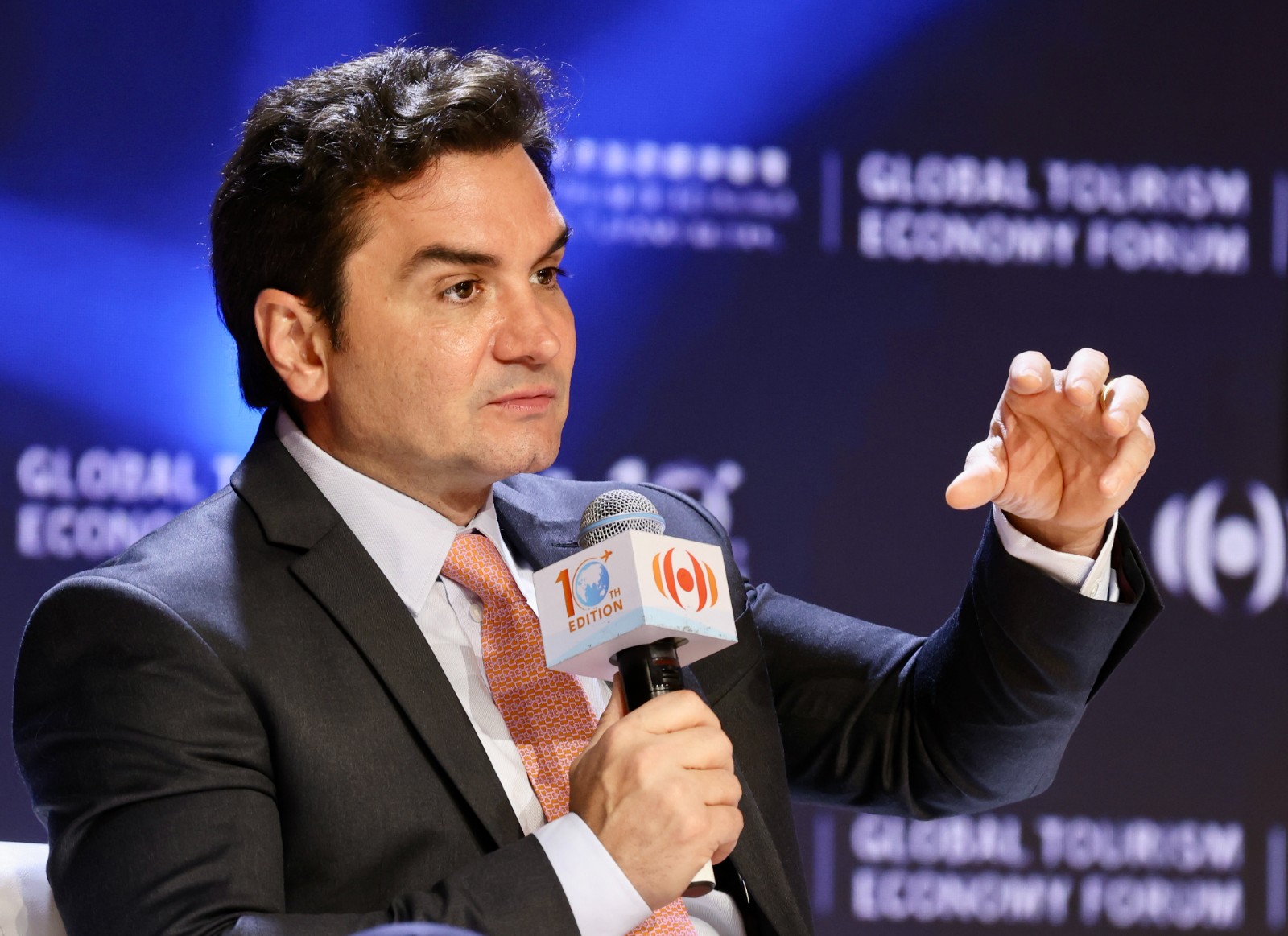2023-09-22
Liu Yifan in Macao

It’s important to adopt policies and strategies that pursue growth and sustainable development simultaneously in order to build a better tourism sector, said analysts at a panel in Macao. Celso Sabino de Oliveira, minister of tourism of Brazil, said the most important task for the tourism industry is to strike a balance between sustainable development and economic value. He made the remarks at the Global Tourism Economy Forum 2023 in an auditorium packed with industry luminaries and veteran investors from across the globe during a session focused on the future of tourism. “Tourism is more than hospitality; (it is also about) how to make good use of renewable energy to reduce carbon emissions and thus protect our environment amid global warming,” de Oliveira said. But when people are protecting natural resources such as forests and rivers, it’s equally important to protect the indigenous peoples who live in those areas by offering them the same economic opportunities that residents enjoy in large cities, de Oliveira said. “We can’t put nature conservation and economic development at odds. They need to be balanced,” he added. Daniela Santanche, Italy’s minister of tourism, said sustainable tourism involves a vast array of factors including climate, the younger generation and digitization, which require more strategic planning with closer cooperation. “Making tourism sustainable can’t just be imagined. Things like culture and society are also important. It’s a team challenge for human beings,” Santanche said. She added more focus on tourism should be featured in governments’ financial budgets today to attract young people back to the sector, as many of them left during the pandemic and new opportunities are emerging, ready to be seized. Natalia Bayona, executive director of the World Tourism Organization, said education should offer young people a path into tourism, as manpower is a prerequisite for sustainable growth. According to Bayona, around 60 percent of investments in tourism go into infrastructure, but more investment should be made in people to equip the sector with the right workforce to survive and thus create a future. “We can’t be sustainable if we don’t have enough people,” she said, adding that more efforts should be made to build a strong academic community and improve online education to show young people the future while they are at school, thereby building confidence in the sector once again. Nicolas de Villiers, president and artistic director of French theme park Puy du Fou, stressed the importance of cultural roots and identities in the tourism sector. He said that globalization was expected to bring happiness to everyone, but in reality, that didn’t turn out to be the case. He said that, globally, we are going back to a world or an era in which people feel safest within their national contexts. People need to have roots within their own national communities, he added. “This is why I believe that our concept will work in the future because we are making some parks that are really rooted in the history and heritage of the countries where we go, especially in Spain or France.” According to de Villiers, his company is aiming to set up some parks, in the next country they work in, focusing on the pride of the national community. Joining the high-profile session were Rosana Morillo, vice-minister of Tourism of Spain; Nuno Fazenda, secretary of state for Tourism, Trade and Services of Portugal; and Paolo Barletta, CEO of Italy-based Arsenale SPA Company. Xu Weiwei contributed to the story. evanliu@chinadailyhk.com